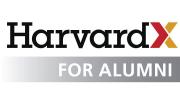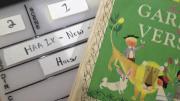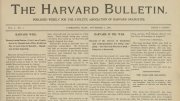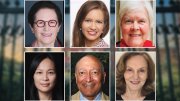Graduates who crave continued access to teaching and faculty members will have a new channel to (virtual) classrooms through HarvardX for Alumni, a spring experiment with the University’s online learning partnership. Beginning on March 22, seven units will be released, one every two weeks, enabling alumni individually, or through gatherings at Harvard clubs or elsewhere, to sample courses on the edX platform:
- Poetry in America, with Elisa New, Cabot professor of American literature;
- The Ancient Greek Hero, with Gregory Nagy, Jones professor of classical Greek literature and professor of comparative literature;
- Computer Science, with David Malan, senior lecturer on computer science;
- Chinese History, with Peter Bol, Carswell professor of East Asian languages and civilizations and vice provost for advances in learning (who oversees Harvard X and the Harvard Initiative for Learning and Teaching) and William Kirby, T. M. Chang professor of China studies and Spangler Family professor of business administration;
- Neuroscience, with David Cox, assistant professor of molecular and cellular biology and of computer science; and two forthcoming courses:
- The Einstein Revolution, with Peter Galison, Pellegrino University Professor, an historian of science; and
- Tangible Things, with Laurel Ulrich, 300th Anniversary University Professor, an American historian who focuses on material culture.
“Access to intellectual content, continuing to learn, ranks very high in what’s important” to alumni, according to the Harvard Alumni Association’s research, said Philip Lovejoy, deputy executive director. Alumni have already made use of HarvardX courses through the edX platform, and of online versions of Bass professor of government Michael Sandel’s “Justice.” (Earlier, before the techological advances that enabled the enriched teaching tools embedded in edX, harvard@home made recordings of lecture courses and campus events available; it is instructive to compare those versions of the Nagy, Sandel, and Ulrich classes with current online learning experiences.)
This spring’s experiment consists of hour-long segments combining new material with content from full-length courses. Each includes an introductory discussion between the professor and Robert Lue, faculty director of HarvardX and of the Bok Center for Teaching and Learning; a 5- to 15-minute activity or exercise from the online course; and an online discussion forum prompted by a question derived from the contents. HAA’s hope is that this brief format will efficiently update alumni about work on campus to improve pedagogy, while whetting their appetite for continuing engagement with their Harvard education—however far, in time and distance, they may be from campus. The response will guide the HAA’s future online learning programs.
Registration information is available at alumni.harvard.edu/x. Alumni learners of the world, log on.










